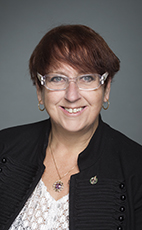Madam Speaker, I thank my colleague for his question. We too would like to set the record straight.
Canada's Olympic Games were magnificent. Even our minster found there was not enough French during the opening ceremonies. Everyone agrees. Nevertheless, Canadians have every reason to be proud of the organization and presentation of the Vancouver 2010 Olympic and Paralympic Games. Canadians and Quebeckers will be left with lasting memories of the Games.
One of those memories will undoubtedly be the performances of our athletes from all over the country, francophone and anglophone alike, representing Canada, a country that is proud of its linguistic duality.
In that regard, throughout the games, both official languages were reflected in an exemplary fashion. The Canadian government and the organizers took every possible measure to make room for both of the official languages of the International Olympic Committee.
In terms of our accomplishments, I would point out that all signage, including directional signs, were in both official languages. Oral announcements were made in both official languages, first in French in accordance with the protocol. Documents and information on the Web for the public, media, athletes and dignitaries were also provided in both official languages.
The biographies of athletes and the daily updates were also written in both French and English. Bilingual volunteers were available and could be identified by the “Bonjour” pin they were wearing. Almost one million people visited Place de la Francophonie, which won a gold medal for the best place to celebrate.
The Government of Canada appreciates the positive comments of the Grand Témoin de la Francophonie and the Commissioner of Official Languages concerning the use of French at the games. The Grand Témoin de la Francophonie had this to say:
With regard to the French presence, expectations based on the promises that had been made were met.
He added that all promises were kept, particularly those with respect to competition sites and building signage. The Official Languages Commissioner added that French was well represented at the games. He concluded that it was very positive.
Even some Francophone journalists had good things to say about the use of French. A columnist with La Presse wrote the following:
I cannot remember a recent Olympic Games where French was as visible at the sites. The introduction of athletes, their short biographies, times and explanations were all given in excellent French. In fact, without swearing to it, at both places, there was more French than English.
We did what was necessary to ensure that the objectives of the Government of Canada with respect to official languages were met and we ensured that the games were for all of Canada. These games were the most bilingual of any to date, according to observers, and the bilingualism of a number of our athletes—

